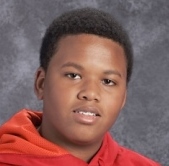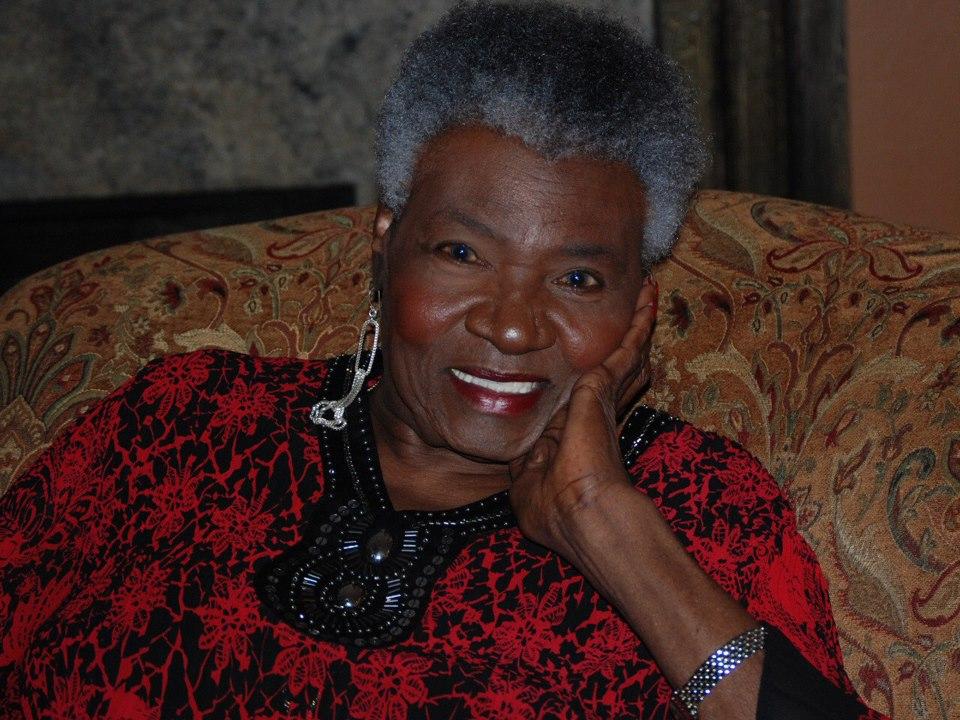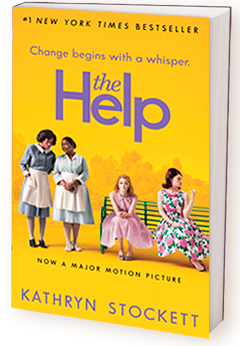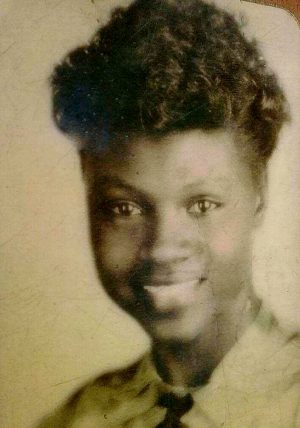
Giovan is a member of the Class of 2019. He joined the Green Wave Gazette during his freshman year and became a copy editor during his sophomore year....


Faith and Family Have Been Her Foundation
March 30, 2017
In recent years, Ms. McHugh and Ms. Louko’s sophomore English students have read “The Help,” a novel by Kathryn Stockett that describes the mistreatment of African American maids by their white female employers. Many people will remember the 2011 Academy Award nominated film starring Viola Davis, Emma Stone, Octavia Spencer and Bruce Dallas Howard. Among other indignities, the maids are not allowed to use the same bathrooms as the families they serve, even though they look after their children. The story is set in Jackson, Mississippi in the early 1960s. “The Help” is fiction, but it conveys realism while describing the struggles of these domestic workers. We thought it would be very interesting to speak with someone that really lived through these times and did this type of work. We were extremely lucky to find a woman who performed domestic work in the south in the ‘50s and early ‘60s, and lived in a small town about 100 miles east of Jackson.

Through a connection with Mr. Dorman (Tutor and Green Wave Gazette Adviser), we found Mrs. Ann Barry, (85-years-old on her last birthday) who lived, worked and raised a family while living in Boston for 42 years, but who is originally from Mississippi, and once lived in Toomsuba, a very small unincorporated community (pop. 773) near Meridian. Mrs. Barry is the second child of her father’s second wife. She married at 19, and had her first child not long after that. She eventually had six more children who have given her 14 grandchildren and 11 great-grandchildren. At different times, she also lived in St. Louis, Alabama and Cleveland before settling in Boston (Dorchester) for 42 years. She now lives in Jacksonville, Florida with her granddaughter.
Mrs. Barry was happy to share her experiences living and working in the south during the turbulent times of Jim Crow and the civil rights movement. Despite the times, she has a lot of good memories, especially about her school in Meridian. “I had a lot of fun there, and I had no problems with anybody. The principal and the teachers were behind you. They built you up (and encouraged) you to do the things you should be doing. I enjoyed being in Mississippi,” said Mrs. Barry. Her mother worked at a knitting mill, and her father was a farmer. Because of this, the poverty of the area didn’t affect them as much. “We didn’t have to worry about things to eat. We always had meat and my mother used to have a garden full of everything; greens and anything she wanted to cook,” said Mrs. Barry.
But, she acknowledges that some of her schoolmates may have had a different experience, and might not have had parents that were as supportive and dedicated as hers. “We had praying parents. They were religious people. They gave you a foundation to stand on, and some children didn’t have that. (Some parents) were alcoholics, or ‘good time Charlie bells,’ that didn’t go to church or do anything substantial. Some people had it real hard because they didn’t know how to do things for themselves. It was hard. You have to have a good foundation; you have got to have something to fall back on (when life is hard),” said Mrs. Barry. However if you were struggling, neighbors were there to help. “Whoever needed something, they knew they could come and get if from you. (If people were in need) you would stop and help your neighbor.”
Mrs. Barry has seen a lot of change in her life. While growing up, she was close to her grandfather, Andrew Young, a former slave who was sold on the chopping block at 5-years-old to a ‘mistress’ in Mississippi. He lived to be 96. “He was my mother’s father. I knew him very well. He was some man. Oh wow! He had power.”
She lived in the south during segregation and the civil rights movement, and knew how dangerous life could be for African Americans in Mississippi. Mrs. Barry lived close to several civil rights crimes committed in her home state, including the kidnapping and murder of 14-year-old Emmett Till in Money in 1955, the assassination of civil rights activist Medgar Evers by a white supremacist in Jackson in 1963, and the murder of three civil rights workers, by the Ku Klux Klan in Neshoba County, on their way home from a voting rights meeting in 1964. “They killed a lot of people,” said Mrs. Barry.
From an early age, she learned to live with segregation and racial injustice. “You knew what you could do and what you couldn’t do. You were taught that. A black boy had to be home by sundown. When it started being dark, (he) better be in the house, because sometimes, they (the police) would just pick at you. You didn’t have to be doing anything,” said Mrs. Barry. “You had to sit in the back of the bus, and if there wasn’t a seat, you had to stand up and hold on the best you could. It didn’t matter how many seats there were in the front. You could put your money in the slot next to the driver, but then you had go around to the back door of the bus. It was ‘the segregation.’ There were things you didn’t do, and if you did, you knew it was trouble,” said Mrs. Barry.
Like the women depicted in “The Help,” Mrs. Barry performed domestic work. She found jobs through “word of mouth,” working for a family for a time, and they would recommend her to their friends who were looking for a maid. “You did everything, all the cleaning, the washing, the ironing, the sweeping and the mopping; and you would take care of the kids if you had to,” said Mrs. Barry. “You worked in these homes, and you worked by the week. You got $2 a day. You worked sun-up to sundown, and, that’s all you got – $2 a day.”

But, unlike the maids in “The Help,” she didn’t feel stuck in any one job. “If I was displeased with how you treated me, I just didn’t go back. I didn’t say anything because you didn’t speak to someone like that. You could get in trouble; they might call somebody in that might do something mean or hurtful to you,” said Mrs. Barry.
Change didn’t come to Mississippi and other parts of the south until more and more African Americans could vote. Mrs. Barry did her part to help by driving people to the polls. “I drove so many people that didn’t have transportation.” But, at the polls, she saw people who could not read or write being asked to read the constitution. “That was just to keep them from voting,” said Mrs. Barry. And, then they closed the polls early. So, no one could vote. “I had to load people up and take them home,” she sighed. “There were a lot of things that happened.” But, eventually she and others did get to vote. “I voted for President Kennedy.”
In the mid ‘60s she moved to Boston and raised more children, but race relations were not exactly perfect there either. While living in Dorchester near Blue Hill Ave, she says she could feel the tension in the air. “I can’t explain it to you, but it was there. The taint was in the air,” said Mrs. Barry. “I was in Boston when Martin Luther King got shot and James Brown came to Boston to help quiet things down. But, it was rough. I was there (in 1967) when they tore up Blue Hill Avenue, and when they burned the stores, people were afraid and they moved out. The place was destroyed. There was a lot of racial stuff that went on, just like now. This (country) could be the loveliest place to live in if people just didn’t have so much hate. And, it’s not just one race, it’s in everybody,” said Mrs. Barry.
Mrs. Barry says she was very glad to finally see a black president when President Obama was elected in 2008. “I was happy. I really was. I knew it would come. I didn’t know when, but I knew it would come. “I think it went well. It went over smooth. They always fought against him, but it’s alright. The fight is over,” said Mrs. Barry. As for President Trump, she fears that his impulsiveness could spark a conflict or even a full-scale war. But, “this is what they (his supporters) wanted, so this is what they’ve got. I don’t know. We’re on shaky ground and shallow water. You can’t swim in shallow water, and you can’t walk on shaky ground!”
If there is one piece of advice that Mrs. Barry would like to pass on it is the importance of faith and prayer. “The only thing we need to do is pray. But, so many people feel like they don’t need to. A few people can’t carry the whole load,” said Mrs. Barry.
Mrs. Barry believes there is still much to be done. She believes that civil rights have come a long way but not far enough. But, as for her own life, she looks back on her experiences with joy and nostalgia, and not with regret. She has lived a life fraught with adversity, but continues to look to the future with hope and optimism.

Giovan is a member of the Class of 2019. He joined the Green Wave Gazette during his freshman year and became a copy editor during his sophomore year....
Deborah Barry Zak • Apr 2, 2017 at 10:00 PM
Thank you Mother for sharing some heart felt memories of Mississippi. You are an inspiration to all of us. Your number “3” child.
Jacqualyn Robinson-Hughes • Apr 1, 2017 at 11:34 PM
My grandmother has lived a very intriguing life and is still a very phenominal woman!?
Rodney Elliot • Apr 1, 2017 at 12:08 PM
This a great story! Really made my day. I have known Mrs. Barry my entire life. She was good friends with my Mom, Kathleen Geter-Harris and her daughter Anita was my first childhood girlfriend. We were all members of Concord Baptist Church in Boston. Mrs. Barry is a beautiful, strong, kind, and generous woman. I remember she gave me my 1st TV. I was soooo exited. lol She always had a smile on her face and I can remember her always being the head of a strong family unit. Mrs. Barry (aka Ma) is loved by many especially me.
We were all members of Concord Baptist Church in Boston. Mrs. Barry is a beautiful, strong, kind, and generous woman. I remember she gave me my 1st TV. I was soooo exited. lol She always had a smile on her face and I can remember her always being the head of a strong family unit. Mrs. Barry (aka Ma) is loved by many especially me.
Michael Edwards • Apr 1, 2017 at 10:19 AM
So much of the history that this lady talks of will be whitewashed. Having been a teenager growing up in Mississippi during the 60s, I witnessed the discrimination and hate. Unfortunately, many kids today are not being taught about the history of slavery, the civil rights movement, the importance of voter rights and more. The struggles are often minimized or glossed over. We are culpable by continuing to not hold our elected officials accountable through our complacency.